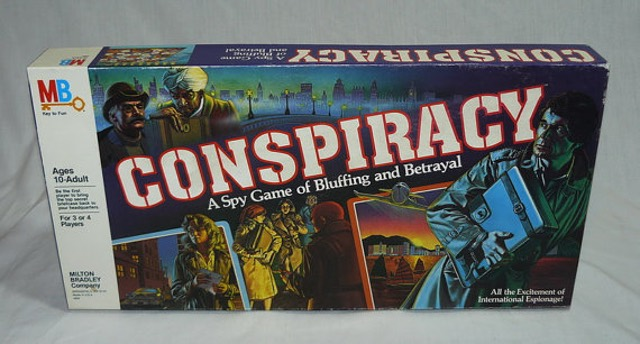
Despite the indictment of 13 Russian professional social media pranksters who worked to tip the 2016 election to
We'll come back to those important qualifiers -- knowingly and secretly -- in a moment.
But first, a word about conspiracy theories: As a rule, they will almost always let you down.
The conspiracy theories that capture our imagination usually depend on false assumptions about how the world works. They rely on the idea that government (or some other large organization) is both profoundly evil and profoundly competent, particularly at keeping secrets. Sometimes the former may be true, but the latter virtually never is. Conspiracy theories also rely on the belief that objectively bad outcomes are subjectively intended. It's like trying to read the world like a work of literature, where all actions foreshadow future events.
That's why I tend to avoid conspiracy theory in favor of what one might call character theory. Character is destiny, as Heraclitus observed, and it serves as a far more reliable guide than feverish dot-connecting of disparate events.
It is
Oh, I think he's morally capable of having done it. As a candidate he publicly called on the Russians to (further) hack
Nor do I think Trump surrounded himself during the campaign with people who would have talked him out of collusion (save for then-Sen.
But while they may have been willing to coordinate with the Kremlin, I'm not at all certain they would have been able to pull it off -- and keep it a secret. Everything we know about the Trump campaign is that it was a shambolic movable feast of warring egos, relentless leaks and summary firings. But we're supposed to believe that everyone maintained total secrecy about Russian collusion?
More implausible, we're supposed to believe that Trump has never let it slip, in private or public? The man admitted he fired FBI Director
So why, you might ask, is Trump so obsessed with stopping
First: Trump thinks the probe is unfair. He knows he didn't personally collude and feels unjustly accused. Second, it's a blow to his ego, because he thinks it robs him of credit for what he believes was a landslide victory. (It wasn't.) And third, he fears Mueller might find something else. Perhaps Trump's not nearly as rich as he claims. Maybe his business practices (or those of his family), particularly with regard to
Former
Mueller's "path to ... Trump goes right through
These three factors add up to an explanation for why Trump insists the whole
Comment by clicking here.
Jonah Goldberg is a fellow at the American Enterprise Institute and editor-at-large of National Review Online.


 Contact The Editor
Contact The Editor
 Articles By This Author
Articles By This Author